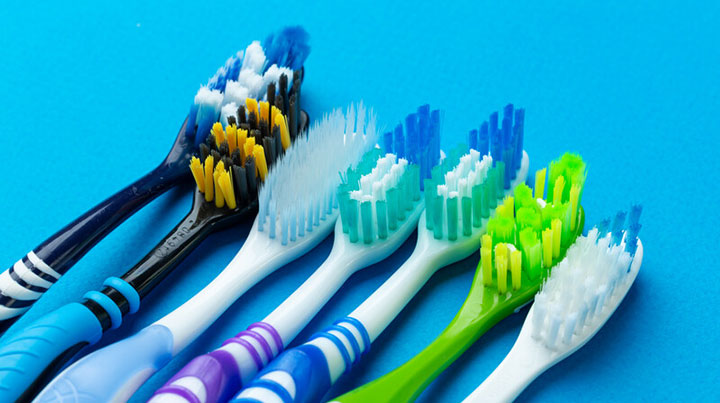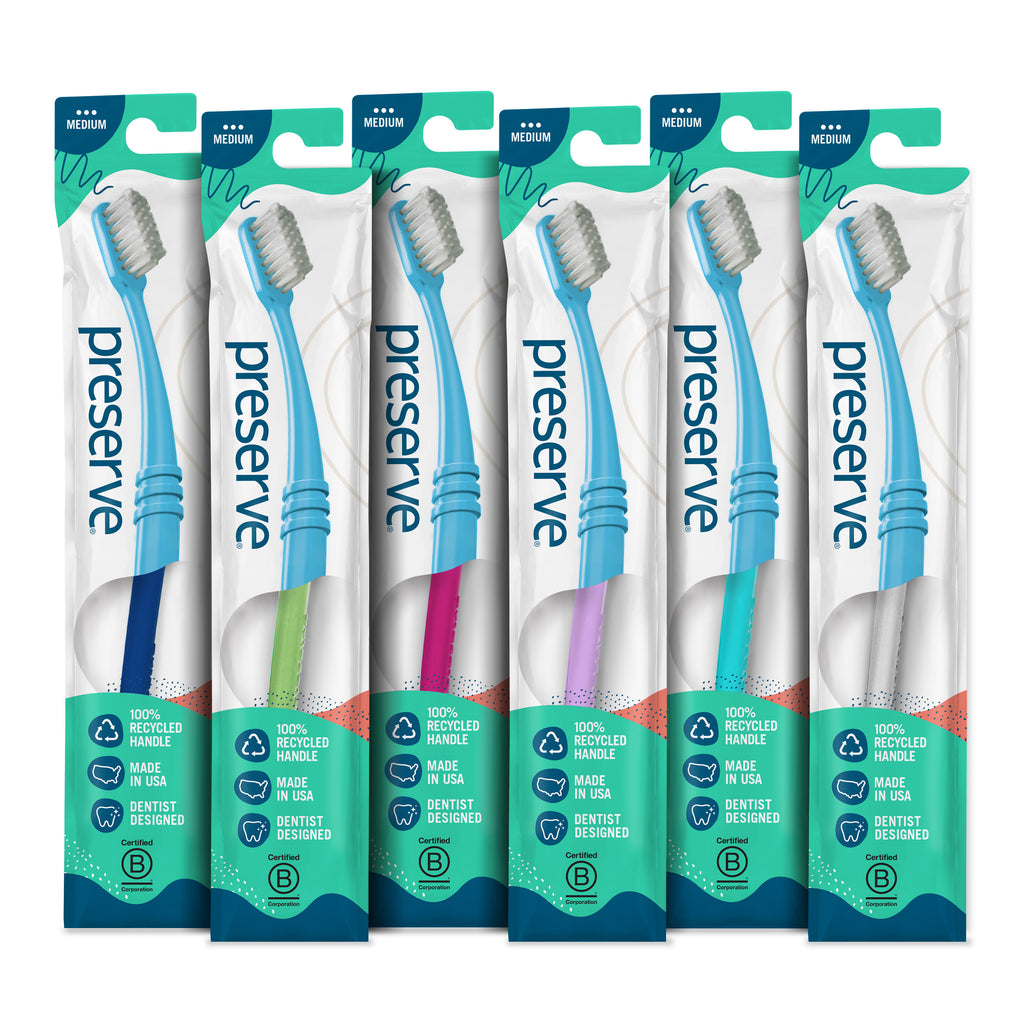All Regarding Toothbrushes: Understanding Their Function in Keeping a Healthy Smile
Tooth brushes are essential devices in dental hygiene. They help eliminate plaque and food fragments, adding greatly to dental health. The selection of tooth brushes readily available today accommodates individual preferences and details oral needs. Comprehending these alternatives and their proper use can lead to far better dental care. Many individuals might not understand the complete impact of Toothbrush option and maintenance on their overall dental health and wellness. What elements should one think about to absolutely maximize their Toothbrush experience?
The Background of Toothbrushes
The evolution of toothbrushes reflects humankind's ongoing pursuit for dental hygiene. Early civilizations utilized basic tools, such as branches and pet bones, to cleanse their teeth. The old Egyptians crafted frayed ends of penetrate primitive toothbrushes around 3000 BC, while the Chinese created the first bristled Toothbrush in the 15th century, utilizing pet hair connected to bamboo handles. This development marked a substantial innovation in oral care.
Sorts of Toothbrushes
Numerous sorts of toothbrushes are created to fulfill the varied needs of users. Hands-on tooth brushes, the most typical type, been available in numerous bristle staminas and head sizes, enabling people to select one that feels effective and comfortable. Electric toothbrushes have actually gotten appeal for their ability to supply regular brushing activity, frequently including timers and pressure sensing units to enhance dental treatment. On top of that, there are specialized toothbrushes, such as those created for youngsters, which often include fun designs and smaller heads for much easier handling. Some users might choose soft-bristled brushes, which are gentler on gum tissues, while others choose for tool or hard bristles for more hostile cleansing. Moreover, disposable tooth brushes offer as practical options for travel. Each type offers an one-of-a-kind function, ensuring that users can find a tooth brush that aligns with their particular oral health practices and choices, inevitably adding to far better oral health and wellness.
How to Pick the Right Toothbrush

The handle should offer a comfortable hold, permitting for effective control during cleaning. Electric toothbrushes can be advantageous for some, using features like timers and pressure sensing units that improve oral care. It is also essential to evaluate individual choices, such as level of sensitivity and any kind of particular dental conditions, when picking a toothbrush. Eventually, getting in touch with a dental professional can provide customized recommendations, making certain one chooses a toothbrush that finest fulfills their dental wellness demands.
Correct Toothbrush Use Methods
Comprehending appropriate Toothbrush usage techniques is vital for preserving suitable oral health. This includes selecting the ideal brush, utilizing the appropriate brushing technique, and adhering to suggested frequency and period for cleaning sessions. Each of these elements plays an essential function in accomplishing a brighter, much healthier smile.
Choosing the Right Brush
Picking the proper Toothbrush is important for keeping suitable oral health and achieving a healthy smile. Customers need to consider several variables when choosing a tooth brush. To start with, the bristle kind is important; soft bristles are generally advised to avoid gum tissue damages while effectively cleansing teeth. Additionally, the brush head size ought to be appropriate for the person's mouth, allowing very easy accessibility to all areas (Toothbrushes). Additionally, users might select in between manual and electrical tooth brushes, with electrical choices frequently providing enhanced cleansing performance. Personal choices, such as handle hold and color, can affect the option. Making certain the ideal Toothbrush is picked can substantially affect the effectiveness of everyday dental care routines and add to lasting dental health
Correct Cleaning Technique
Lots of people possess a tooth brush, not everyone recognizes the right technique for effective cleaning. Proper brushing starts with positioning the Toothbrush at a 45-degree angle to the gum line, allowing the bristles to reach both the teeth and gum tissues. Mild, round motions are recommended, staying clear of extreme scrubbing, which can harm enamel and irritate gums. Each quadrant of the mouth ought to be given equivalent interest, making certain thorough cleaning of all surfaces-- outer, inner, and chewing locations. It is also important to brush the tongue to remove bacteria and refresh breath. Following these strategies can improve plaque elimination and add to total dental health and wellness, promoting a brighter, much healthier smile.
Regularity and Duration
Keeping a regular brushing routine is essential for suitable oral health and wellness. As soon as in the morning and when before bed-- to successfully remove plaque and prevent tooth decay, dental experts suggest brushing at least two times a day--. Each cleaning session must last for a minimum of 2 minutes, allowing sufficient time to clean all surface areas of the teeth thoroughly. It is very important to use gentle, circular activities to secure the periodontals while successfully cleaning the enamel. In addition, individuals should change their Toothbrush every three to 4 months or earlier if the bristles become torn. By adhering to these standards, people can substantially boost their dental hygiene practices and add to long-lasting oral wellness. Uniformity in regularity and period is crucial to preserving a healthy smile.
Tips for Preserving Your Toothbrush
Maintaining a toothbrush is necessary for dental health. Toothbrushes. Appropriate storage space methods, a normal replacement routine, and routine cleaning can considerably improve its efficiency. By following these standards, people can assure their Toothbrush continues to be a reliable tool for achieving a healthy and balanced smile
Correct Storage Strategies
To ensure a tooth brush continues to be hygienic and efficient, appropriate storage methods are essential. After cleaning, it is necessary to completely rinse the Toothbrush under running water to eliminate tooth paste and check these guys out particles. The Toothbrush should be saved upright in a holder, permitting air blood circulation to help with drying. Keeping the Toothbrush in a shut container or cabinet can promote microbial growth as a result of moisture retention, so this must be stayed clear of. Furthermore, it is advisable to keep a range from other tooth brushes to avoid cross-contamination. For households with multiple individuals, private holders can aid maintain brushes different. Routine cleaning of the storage location can better enhance health, guaranteeing that the Toothbrush continues to be a trustworthy device for oral health and wellness.
Routine Substitute Set Up
A consistent replacement schedule is important for guaranteeing the performance of a tooth brush. Dental experts suggest replacing tooth brushes every three to four months, or faster if the bristles end up being torn. Worn bristles do not tidy teeth properly and can nurture bacteria, reducing oral health efforts. In addition, individuals recouping from disease needs to think about changing their tooth brushes to protect against reinfection. This easy behavior promotes excellent dental health and wellness and enhances the general efficacy of brushing. Those using electric tooth brushes should validate they replace the brush heads according to the producer's guidelines. Sticking to a routine replacement timetable not only sustains a healthy and balanced smile however additionally strengthens the value of keeping correct oral hygiene practices.
Cleansing Your Toothbrush
Cleaning a tooth brush routinely is crucial for guaranteeing excellent dental health. In time, tooth brushes can harbor germs, which might compromise oral health. To maintain a tidy tooth brush, it is advised to wash it completely under warm water after each usage, ensuring all toothpaste and debris are gotten rid of. Furthermore, soaking the Toothbrush in a service of equivalent components vinegar and water can help disinfect the bristles. This must be done once a week for finest results. It is additionally recommended to save the Toothbrush in an Read Full Article upright setting, enabling it to air dry and avoid dampness accumulation. Lastly, prevent sharing toothbrushes, as this can move damaging germs. Following these suggestions can extend the life of the Toothbrush and promote much better oral health.
The Influence of Toothbrushes on Oral Health And Wellness
While lots of factors add to dental health, the choice of Toothbrush can considerably affect a person's dental health routine. The design and bristle kind of a tooth brush are essential aspects that influence plaque removal and gum tissue health. Soft bristles are generally suggested by dental experts, as they properly clean teeth without triggering damages to the periodontals. Furthermore, the dimension of the Toothbrush head should permit simple handling in the mouth to get to all locations, consisting of difficult-to-access back teeth.
Electric tooth brushes have also gotten popularity as a result of their capacity to give even more consistent and effective cleaning through oscillating or turning motions. Researches show that individuals of electrical tooth brushes frequently accomplish much better plaque reduction compared to manual brushes. In general, the right Toothbrush can boost a person's oral hygiene techniques, leading to improved total health and wellness outcomes and a lowered risk of dental problems such as dental caries and periodontal illness.
Regularly Asked Inquiries
Exactly how Frequently Should I Replace My Tooth brush?
If the bristles end up being frayed, experts advise changing a tooth brush every three to four months or quicker. Regular replacement guarantees effective cleansing and decreases the threat of germs buildup, adding to better dental health in general.
Can I Make Use Of an Electric Toothbrush Without Tooth Paste?
Yes, an electrical Toothbrush can be used without tooth paste (Toothbrushes). However, making use of tooth paste enhances cleansing efficiency and provides fringe benefits, such as fluoride security. It is generally recommended to make use of tooth paste for suitable oral hygiene.
What Bristle Hardness Is Finest for Sensitive Teeth?
People with sensitive teeth normally gain from soft bristle toothbrushes. These bristles properly clean teeth while decreasing pain, permitting a gentler brushing experience that can assist keep oral health without aggravating sensitivity issues.
Do I Need a Special Toothbrush for Braces?

Are Bamboo Toothbrushes Better for the Atmosphere?
Bamboo tooth brushes are typically considered much better for the environment because of their biodegradable nature and lowered plastic use. They Resources provide a sustainable option, aiding to decrease waste while still effectively advertising dental health.
The old Egyptians crafted frayed ends of sticks right into primitive tooth brushes around 3000 BC, while the Chinese created the first bristled Toothbrush in the 15th century, using animal hair connected to bamboo handles. Understanding appropriate Toothbrush usage strategies is crucial for maintaining perfect dental wellness. Picking the ideal Toothbrush is important for preserving perfect dental health and accomplishing a healthy and balanced smile. Maintaining a toothbrush is crucial for oral health. While lots of aspects contribute to oral health, the choice of Toothbrush can greatly influence a person's oral hygiene regimen.